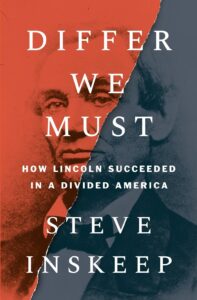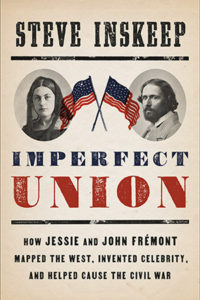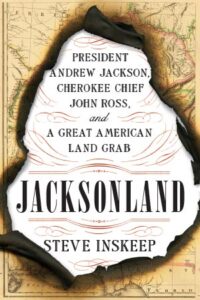The Shifting Racial Identity of John Ross

This is John Ross, who in 1828 was elected Principal Chief of the Cherokee Nation. Ross was a man of mixed race. He lived for years near the border between the Cherokee Nation and the “whiteside,” as he sometimes called the territory of white settlers. And in an era when Cherokees commonly wore white styles of clothing, Ross sometimes slid across the line.
This excerpt from the opening pages of Jacksonland recounts part of Ross’s 1812 journey down the Tennessee River. A party of white men wanted to stop all Indians traveling downriver. Safety forced Ross to pass as white, and even to put a man off his boat who could not pass as white.
Because he spoke English, and had more white than Indian ancestry, Ross could pass more easily than most. Yet he also fit easily in the Cherokee Nation. It was a matrilineal society. A great-grandmother, on his mother’s side, was a full-blooded Cherokee. The evidence suggests that Cherokees accepted him simply as Cherokee.
It was, instead, white people who questioned his authenticity. In an 1831 report, a Georgia state official reported that many Cherokee leaders were “mixed-breeds” and suggested that they did not really represent their people. White officials were surprised and frustrated to discover that Cherokees overwhelmingly did support Ross.
His correspondence suggests that Ross leaned toward different sides of his ancestry as prudence or policy demanded. He usually signed letters by his English name, but sometimes signed them Kooweskoowee, his Cherokee name. In an 1837 letter to Seminole leaders, he declared, “I am of the aboriginal race of redman of this great Island–and so are you.” In an 1834 letter to Andrew Jackson he took a different tone, reminding Jackson that they were comrades, having served together in an army fighting Indians, the “deluded red foe.”
Even today, Ross’s racial status can be cast in different ways. Many Cherokees still revere him as a great national leader. But a 2011 biography calls him “the first white man to champion the voiceless Native American cause.” When touring to talk about Jacksonland, I encountered a man from Chattanooga, Tennessee, which generations ago was called Ross’s Landing, after a ferry Ross operated there. The man told me he’d grown up thinking of John Ross simply as a white guy.



